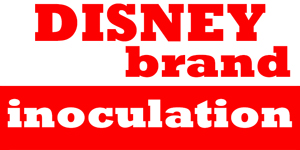


How the COVID-19 Vaccine May Cure What Ails Mickey Mouse
by Howard Fencl, Hennes Communications
The brand is fed by nearly a century of Mickey Mouse magic, of fantasy, dreams and the promise of an escape – if only temporary – from the realities of the outside world. And now, in the north end of the Toy Story Land parking lot at Disneyland, in Anaheim, California, throngs of Americans desperate for a clinical escape from the threat of COVID-19 wait in endless queues for a shot at the vaccination. Orange County officials announced this week that Disneyland would be the first of five supersites to host mass vaccinations in an all-out assault on California’s grim COVID outbreak.
Andrew Do, acting chairman of the county’s board of supervisors, said “There’s no better place to have our first super POD [point-of-dispensing site] than right here at Disneyland, a travel destination for people around the world.”
But California regulations have made Disneyland anything but a travel destination – the park has been closed for nearly ten months during the COVID-19 crisis. California will not allow the park to reopen until the COVID infection rate in Orange County “has less than one daily new case of coronavirus per 100,000 people, as well as less than 2% of tests coming back positive.” Even then, the state will permit the park to operate by reservation-only at 25% of its capacity.
Disneyland, bleeding revenue by the hour, cried foul.
“We have proven that we can responsibly reopen with science-based health and safety protocols strictly enforced at our theme park properties around the word,” tweeted Disneyland President Ken Potrock last October, “Nevertheless, the State of California continues to ignore this fact, instead mandating arbitrary guidelines that it knows are unworkable and that hold us to a standard vastly different from other reopened businesses and state-operated facilities.”
The tweet felt like an uncharacteristically snarky rebuke from leadership of the Happiest Place on Earth. But frustration in the Disney organization is no doubt high. Its theme parks worldwide are reeling from COVID closures and attendance restrictions. The pandemic has forced the company to lay off 32,000 theme park employees in the U.S. alone.
Disney’s decision this week to work with county officials opening a Disneyland parking lot as a vaccine supersite is certainly a tremendous service to its community and demonstrates its ongoing commitment to corporate social responsibility – but it is also a canny reputation management strategy to smooth feathers it may have ruffled protesting government COVID restrictions, strengthening those important ties at the same time.
Orange County officials lined up to thank Disneyland in a January 11 press release, saying Disneyland “stepped up” to help fight the pandemic.
The decision is no doubt also a subtle yet powerful public relations strategy, sending a message to millions of families and theme park fans unable to visit the park for nearly a year: Disneyland may be closed, but it offers the magic of an antidote to the depressing threat of COVID-19, and the promise of an eventual return to our pre-pandemic lives.
You can be sure that the thousands of Californians receiving the vaccine in the Toy Story Land parking lot will forever think about Disneyland whenever they talk about the pandemic. The vaccine may have saved their lives. Disney made it possible. And that’s powerful brand medicine for a company starved for revenue by COVID-19.